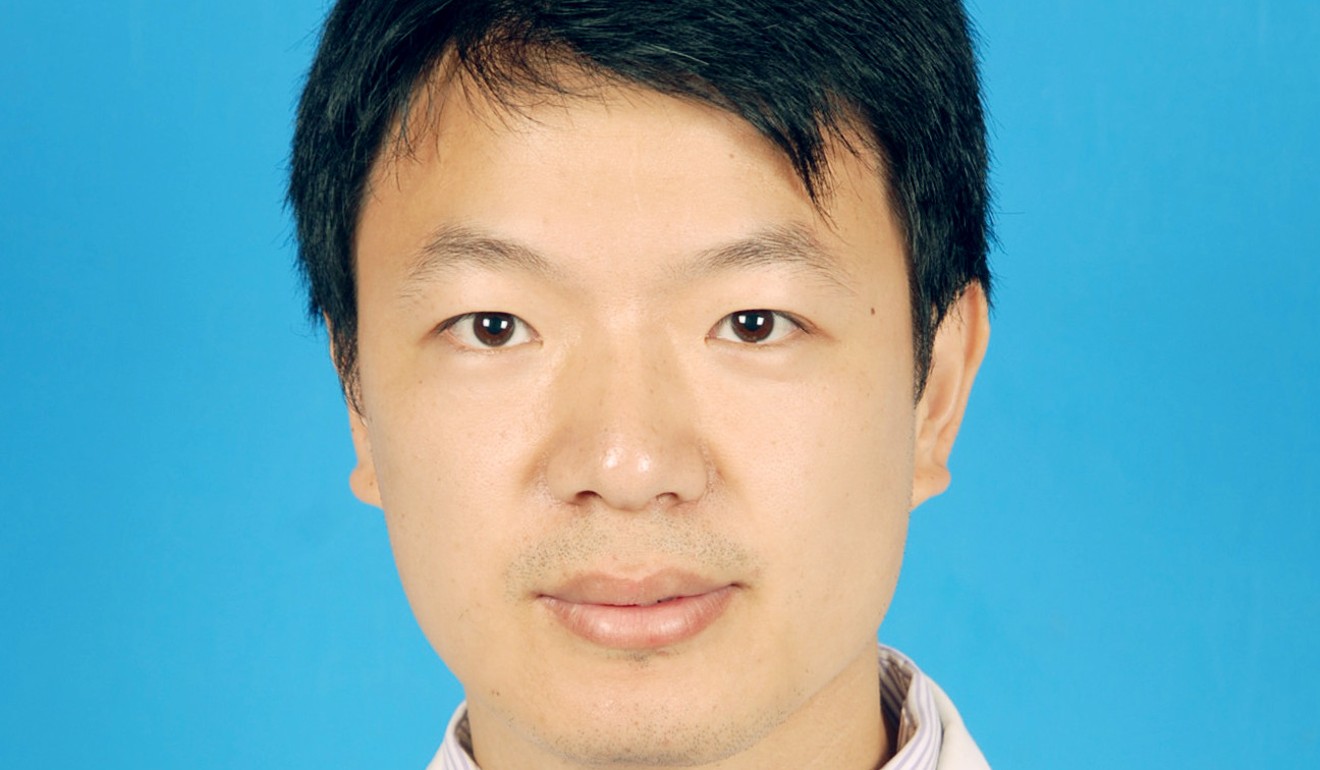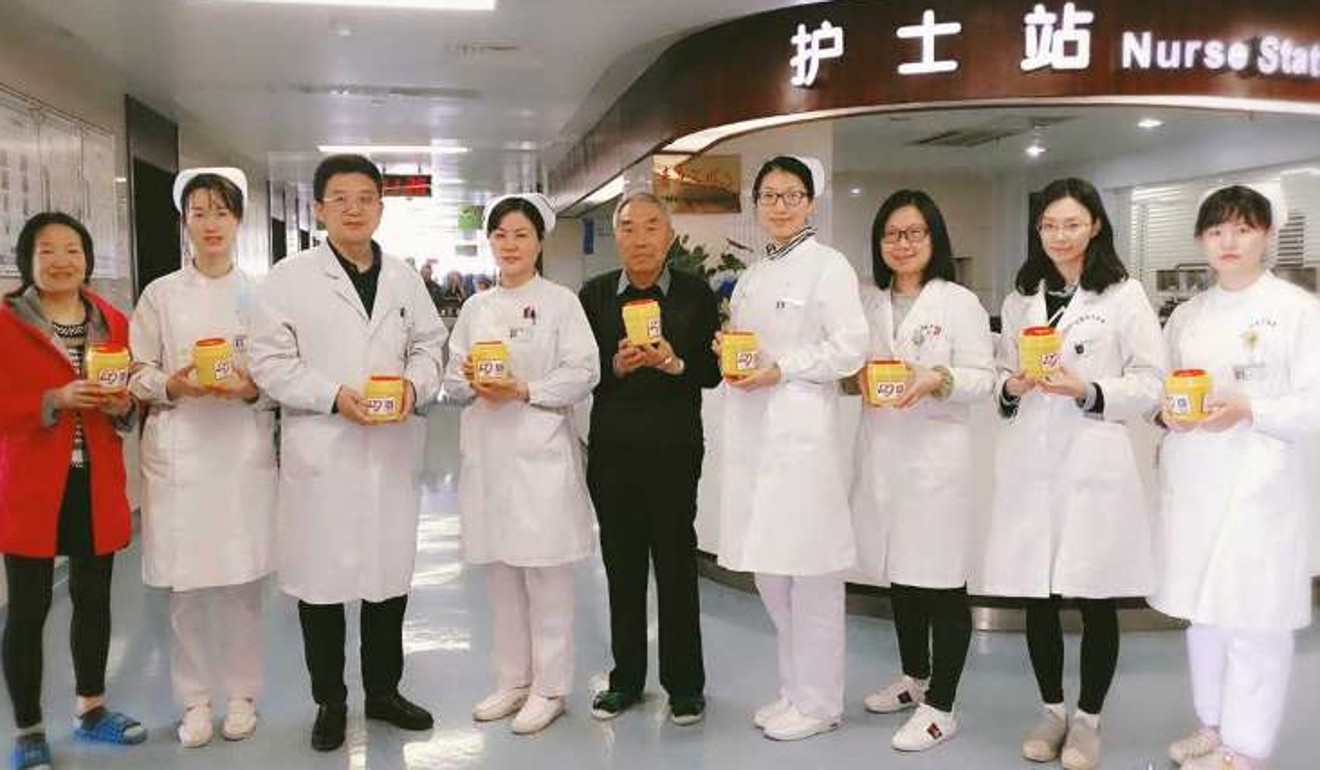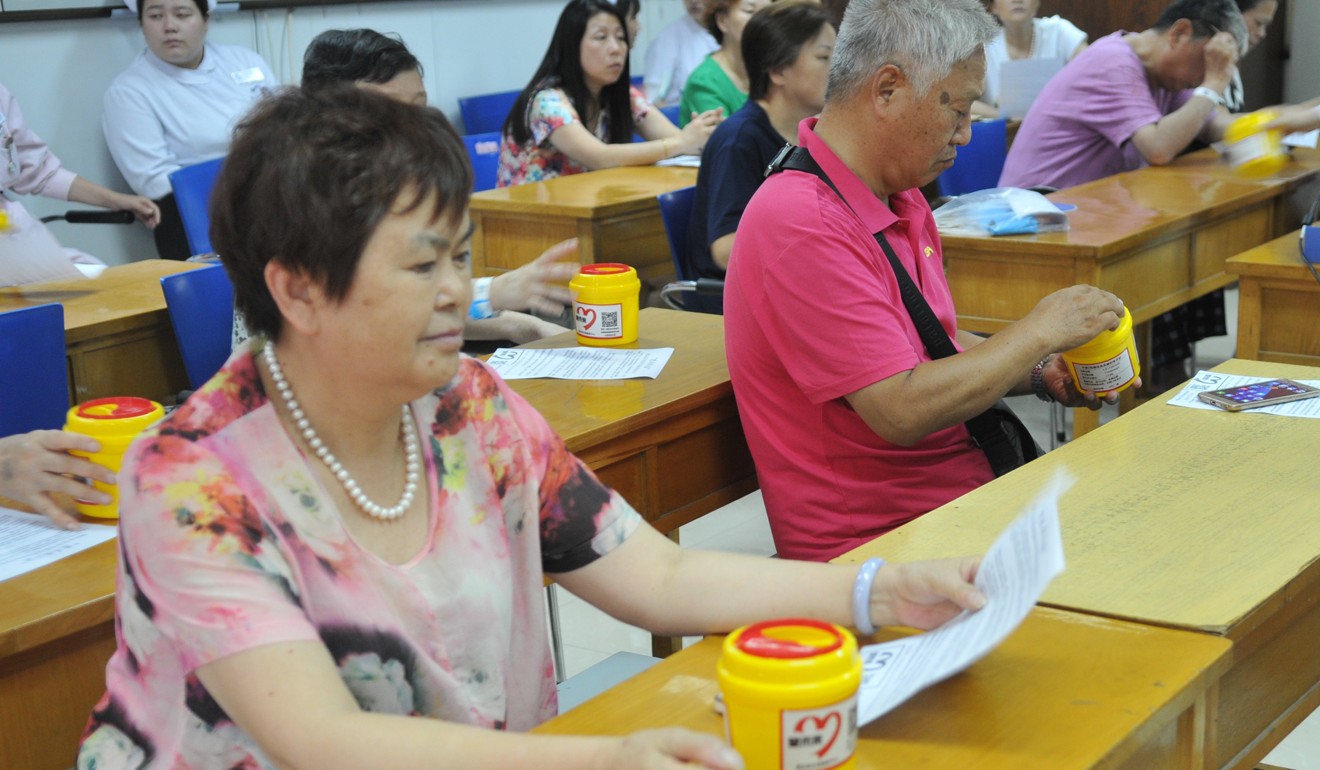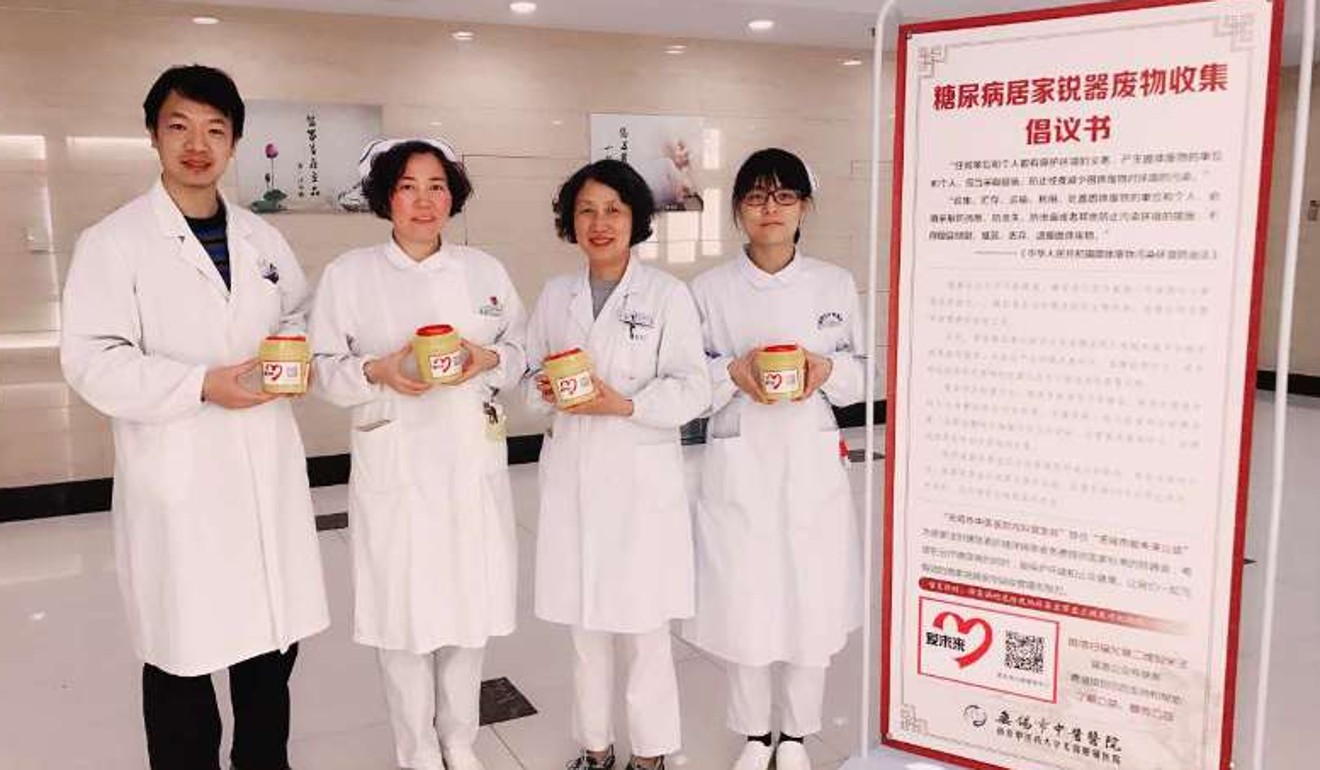
Campaign takes a stab at promoting proper disposal of used needles in China
- Used syringes in household rubbish cans constitute a ‘gigantic potential source for contagious diseases’, doctor says
- I Love Future NGO has distributed 12,000 sharp waste boxes to diabetes patients at no charge at 20 hospitals over five years
Five years ago, Hu Yuan, an endocrinologist in Wuxi, a city near Shanghai in eastern China, asked his diabetes patients what they did with the needles they used to inject themselves with insulin.
The answer left him “astonished and worried”.
“They said they just threw it [away] like ordinary household rubbish,” Hu said in an interview.
Accustomed to hospitals collecting and disposing of waste needles discreetly, the doctor said it was unthinkable that “so many used needles were left in the garbage of our communities, exposed in the open air” – essentially becoming one “gigantic potential source for contagious diseases”.

The more he dwelt on the maths – a huge number of diabetes patients in China would do the same thing with their used needles after self-injecting insulin or conducting blood sugar tests – he resolved to stop the disposal of used needles in rubbish cans.
He and his colleagues at Wuxi Traditional Chinese Medicine Hospital started to promote the importance of people refraining from throwing away needles wilfully.
The idea was to get each patient to dispose of used needles in a special “sharp waste” box and then take the box to a hospital where the they could be properly treated like other medical wastes.
Surge in insulin demand could leave millions without treatment
Since then, the I Love Future NGO he founded in October 2014 has distributed 12,000 sharp waste boxes free of charge to diabetes patients at 20 hospitals in Jiangsu province and Shanghai. An estimated 700,000 needles have been collected to date, Hu said.
“It’s a small progress and we have a long, long way to go,” the 38-year-old said, referring to China’s huge diabetes population.

More than 100 million adults in China – about one in 10 – have diabetes, according to figures from the Chinese Centre for Disease Control and Prevention for 2013, the latest available.
Improper disposal of needles also poses a high health risk because more than 100 million people in China carry the hepatitis virus, and millions more have HIV/Aids or syphilis. All these ailments can be transmitted from person to person via infected blood.
“Although we don’t have accurate figures, it’s quite possible that someone will contract an infectious disease due to these randomly thrown needles,” Hu said. “This is a big social issue.”
Are you at risk of diabetes? AI could predict it 15 years in advance
However, no specific government department in mainland China is designated to handle the disposal of used needles per se.
Hu said that when he checked with the environmental authority, he was told the needles were medical waste; thus, it was up to the health authority to take care of them. However, the health department told him they would only handle waste generated by medical institutions, not households.

Hu said that checking a 2008 list of dangerous waste in China suggested “the needles belong to dangerous wastes because they pose hazards to the environment and human bodies”.
However, “no government body pays attention to it”, he said.
The older generation should know blood donation needles are safe
Hu said his grass-roots NGO would be hard pressed to compel the authorities to do anything.
But this option was inconvenient for many people, Hu said. The ideal way to get rid of the needles would be to have people leave them in designated dustbins in their residential blocks, but mainland communities generally lacked the facilities for picking up and disposing of such waste, he said.

Getting people to change their needle disposal habits was an uphill battle, Hu said, adding that a poll of his hospital patients revealed that just one in 50 collected their used needles and disposed of them properly.
“They said it’s too troublesome,” he said. Their view was: “Just throw it away, we did this for many years. It should be fine.”
Low-income diabetic children reusing old needles
The doctor said he was aware his work was fraught with obstacles but he was determined to carry on.
“My project’s ultimate goal is to let our environmental and public welfare concept be buried in everybody’s mind.”
Although I Love Future manages to distribute sharp wastes boxes to patients through partner hospitals, some institutions refuse to back its campaign.
“I understand it would be their extra work and the doctors there are not obliged to care about where the used needles go,” Hu said. “That means we should do more education campaigns.”
The NGO has no full-time staff, and half of its volunteers are doctors.
Running the organisation in his spare time was a way to contribute to society, Hu said.
“As a doctor, I am busy with my work at hospital,” he said. “When I am off, I devote almost all my time to various projects of my organisation.
“I have a hectic schedule and I am happy with what I am doing,” he said. “Doing this voluntary job has become part of my life.”

